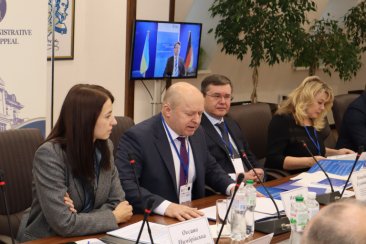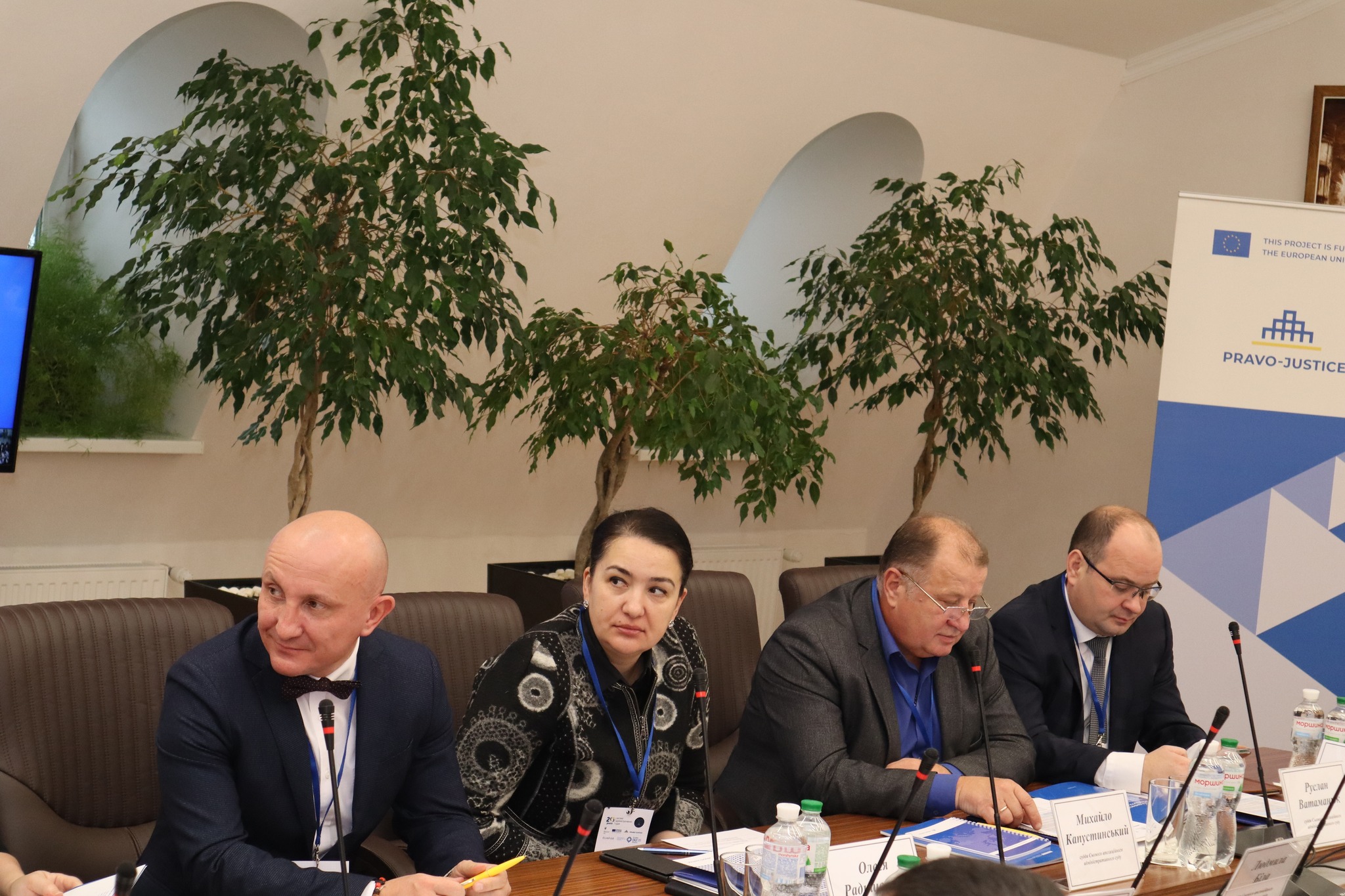Contact center of the Ukrainian Judiciary 044 207-35-46

“Judges of administrative courts in fact have one calendar year to thoroughly examine and reflect on the Law of Ukraine On Administrative Procedure, which will enter into force on December 15, 2023,” said Mykhailo Smokovych, President of the Administrative Cassation Court within the Supreme Court, in his welcoming speech at a seminar for judges of administrative courts on the legislative innovations of this Law. The event took place on November 21, 2022 at the Seventh Appeal Administrative Court in Vinnytsia.
Mykhailo Smokovych explained that the institution of administrative procedure was new for Ukraine, but not for the world. The legal and social value of the Law of Ukraine On Administrative Procedure is obvious, since the legislator has defined a unified algorithm of actions for the official who is obliged not only to focus on the request addressed to him, but also to help a person protect his rights in the field of public legal relations. In addition, the legislator has made it impossible to act arbitrarily or omit action in the field. "From now on, an official of the executive power or local self-government bodies may not justify his own arbitrariness, his inaction when helping a person to resolve a certain public-legal dispute, by referring to part 2 of Art. 19 of the Constitution of Ukraine and motivating it by the fact that state authorities and local self-government bodies, their officials are obliged to act only on the basis, within the powers and in the manner prescribed by the Constitution and laws of Ukraine. At present there is a Law establishing the order of the administrative procedure for each representative of the authorities", - said the President of the Administrative Cassation Court within the SC.
Team Leader of the EU Project Pravo-Justice Oksana Tsymbrivska emphasized that Ukraine was the only country in the European area that did not have such a law on the administrative procedure. The European Union, granting Ukraine the candidate status, confirmed that Ukraine met the Copenhagen criteria for membership in the context of ensuring the right to good governance and guarantees of human rights in relations between public authorities, local self-government and the citizen. This is the evidence that Ukraine is on par with other European countries in terms of having a common administrative procedure.
Martin Steinkühler, Judge of the Federal Administrative Court of Germany pointed out that in Germany the Code of Administrative Procedure came into force in 1977. Prior to that, there had been a development of case law that had established general principles of administrative procedure. So, the legislator did not actually create something new. Instead, he had been guided by developments of the case law and adopted those formats of work and provisions already developed in administrative courts, and the authorities were now adhering to the rules and the principle of interpretation.
The judge said that citizens were not subjects, but rather owners of the right that the state should protect. Administrative procedural legislation promotes transparency, sustainability and allows for better adherence to clarity and consistency in the implementation of procedures.

Edith Zeller, Judge of the Administrative Court of Vienna, expert of the EU Project Pravo-Justice, spoke about some points regarding the Austrian procedural law on administrative procedure. In particular, she informed that, in general, the administrative courts of Austria operated according to principles similar to those of German colleagues: they correct mistakes made by the administrative authority. The court can either supersede the decision of the administrative body or conclude that the body made the right decision. The speaker also drew attention to the fact that, as in Germany, in Austria technical and procedural errors did not automatically result in the annulment of an administrative act or loss of its effect.
Olesia Radyshevska, Judge of the Administrative Cassation Court within the SC, spoke about the training of future lawyers in higher educational institutions. Since 2016, the section on administrative procedure has been mandatory to study. To unify all training programs on administrative law, this topic is included in the External Independent Evaluation (ZNO). So there is hope that the younger generation of lawyers will be familiar with the concept of administrative procedure, the principles of good governance, or the positive right to good administration.
Regarding the adoption of the Law of Ukraine On Administrative Procedure, the speaker stressed that the Ukrainian legal system needed it because our state is a country of a continental legal system with post-Soviet features. Almost all such countries strive for codification. Among them, the codification of public branches of law. So, the fact that we have a single codified act in the field of administrative and procedural relations is a confirmation that we are part of this vast legal system.
The Judge of the Administrative Cassation Court within the SC Volodymyr Bevzenko said that there were a lot of obstacles that should be discussed in order to develop conclusions. He focused on overcoming conflicts in the application of the Law of Ukraine On Administrative Procedure, special laws and other by-laws. And suggested a methodology according to which the following questions should be answered:
Only an affirmative answer to all three questions (finding all prerequisites) will indicate the possibility of applying the Law of Ukraine On Administrative Procedure or the principles of this Law or special laws, other by-laws.
The judge believes that seminars for both judges and administrative authorities will help to prepare for the application of the Law.
As part of the discussion, the seminar participants agreed that the Law of Ukraine On Administrative Procedure should enter into force on December 15, 2023, any delay would be inappropriate and undesirable both because of it being essential for the state administration mechanism, and taking into account the commitments made by Ukraine to the EU.
During the discussion, the participants also talked about the absence of a law on normative legal acts in Ukraine, which is a basic law on laws.
This is the second event in a series of seminars for judges of administrative courts on the legislative innovations of the Law of Ukraine On Administrative Procedure, which was organized by the EU Project Pravo-Justice together with international partners from EU4PAR and the German Foundation for International Legal Cooperation with the participation of judges of the Administrative Cassation Court within the SC, district courts, the Seventh Appeal Administrative Court and Pravo-Justice experts.
Photo courtesy of the Seventh Appeal Administrative Court Facebook page.